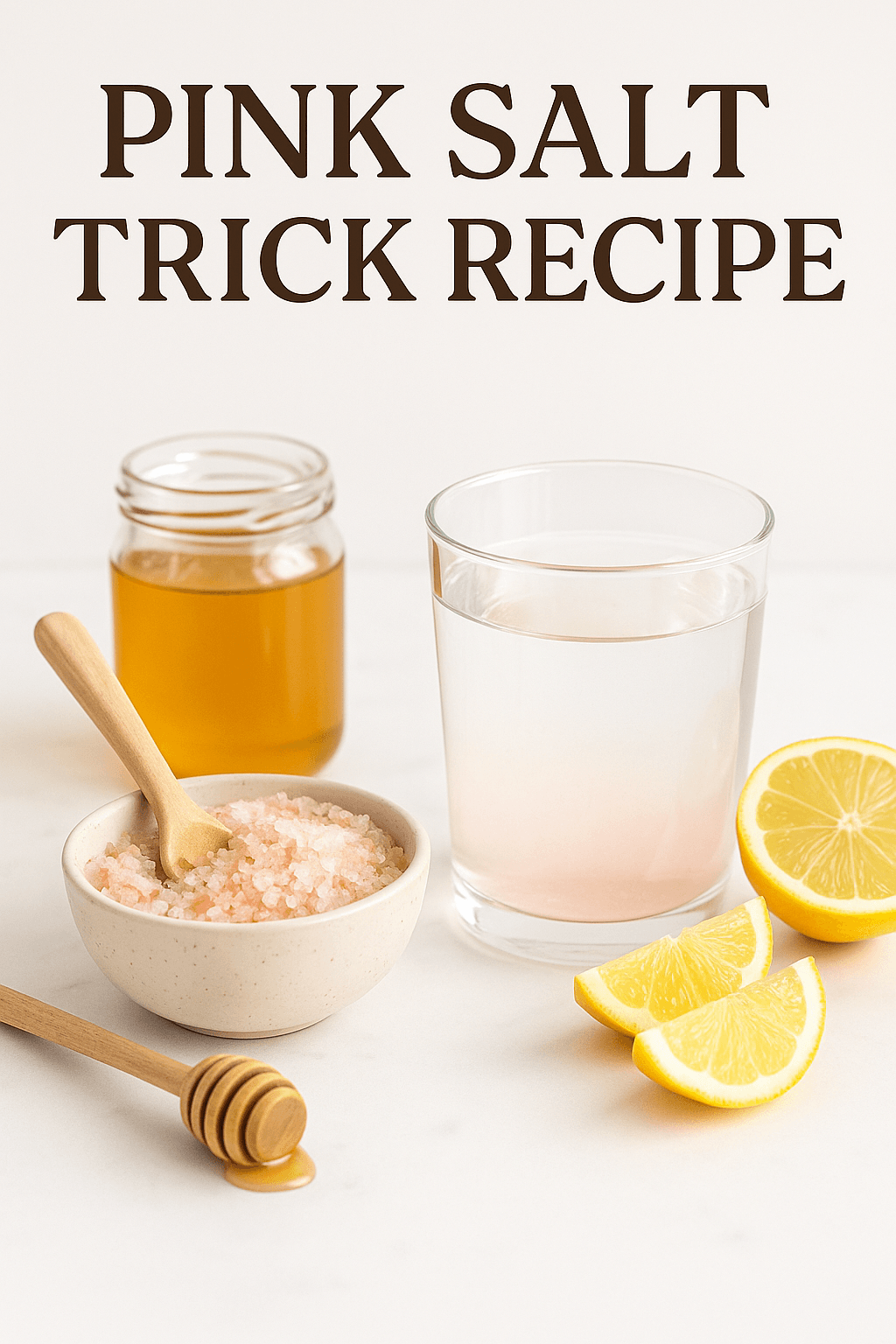From a professional chef’s 15-year journey with finishing salts
Why Pink Himalayan Salt Matters More Than You Think
Most home cooks are unknowingly sabotaging their food. They salt early, salt heavily, and never taste the difference that timing makes. This isn’t just about pink salt; it’s about understanding how mineral content, crystal size, and application methods can turn a $12 grocery store steak into something that tastes like it came from a $50-per-plate restaurant.

The Science Behind the Magic
Mineral Profile Breakdown:
- 84 trace minerals vs. table salt 2
- Lower sodium density (why do you need less?).
- Slow dissolution rate = controlled flavor release
- Iron oxide gives it a pink color AND affects taste perception.
Why it works:
Your taste buds detect salt differently when it hits the surface versus when it’s cooked. Surface salt creates an immediate flavor impact while preserving the food’s natural moisture and texture.
The Professional Method
Equipment You Need:
- Coarse pink salt (for finishing).
- Fine pink salt (for cooking/baking).
- Small pinch bowl (keeps portions consistent)
- Microplane grater (for custom textures).
The 3-Second Rule:
Apply finishing salt within 3 seconds of plating while the food is still steaming. This creates partial dissolution for optimal flavor distribution.
Advanced Applications by Food Type
Red meat mastery
The steakhouse secret:
- Rest the cooked steak for 5 minutes.
- Slice against the grain
- Sprinkle coarse pink salt on the cut surfaces (not the top).
- Why: Salt penetrates exposed meat fibers instantly
Portion: 1/8 teaspoon per 8oz steak
Seafood Precision
The 2-Salt Method:
- Fine pink salt in cooking liquid
- Top with coarse pink salt and garnish with lemon zest. Ideal for dishes like salmon, scallops, and white fish.
Vegetable transformation
Before/After Techniques:
- Roast vegetables with regular salt.
- Finish with pink salt, olive oil, and a splash of lemon or vinegar.
Best with: Roasted root vegetables, grilled asparagus, sautéed greens
Baking Breakthrough
Dessert applications:
- Chocolate chip cookies: 2-3 coarse flakes on top before baking
- Caramel sauce: 1/4 tsp fine pink salt per cup
- Bread: Replace 100% table salt with fine pink salt
Professional Ratios & Conversions
Food Type
Pink Salt Amount
Application Time
Grilled meat (6oz)
1/8 tsp coarse
Immediately after resting
Roasted vegetables (1 lb).
1/4 tsp coarse
30 seconds before serving
Pasta (4 servings).
1/2 tsp fine
While tossing in the sauce
Baked goods
3/4 of the recipe’s salt amount
During mixing
Flavor Pairing Matrix
Amplifies These Flavors:
- Umami: mushrooms, tomatoes, aged cheeses
- Sweet: caramel, chocolate, stone fruits
- Fats: olive oil, butter, avocado
- Acid: citrus, vinegar, wine
Signature combinations:
- Pink salt + rosemary + garlic → Perfect for roasting potatoes.
- Pink salt + black pepper + lemon zest → Universal finishing blend
- Pink salt + smoked paprika → Transforms grilled vegetables.
Common Mistakes (And How To Fix Them)
Avoid using pink salt in pasta water.
Use regular salt for cooking water; reserve pink salt for finishing.
Salt raw meat only hours ahead.
Salt-cooked meat just before serving
Use fine salt as a garnish.
Coarse salt for texture, fine salt for even distribution
Storage & Shelf Life Secrets
Optimal storage:
- Airtight glass jar with a tight seal
- Add 2-3 grains of rice to prevent clumping.
- Store away from heat sources.
- Shelf life: Indefinite if kept dry
Pro Tip: Keep a small ramekin of coarse pink salt next to your stove for instant access.
Cost Analysis: Is It Worth It?
Price Comparison:
- Pink Himalayan salt: ~$0.50/oz
- Table salt: ~$0.05/oz
- Usage difference: You use 25% less pink salt
Value Calculation:
- 1 lb of pink salt = ~300 servings of finishing salt
- Cost per use: ~$0.05
- ROI: Transform every dish for nickels
Beyond Basic: Advanced Techniques
Infused pink salt blends:
- Herb Salt: Mix 1 cup coarse pink salt + 2 tbsp dried herbs
- Citrus Salt: Combine with lemon/lime zest (dehydrate first).
- Spice Salt: Add cumin, coriander, or chili flakes
Presentation Techniques:
- Salt Crust Cooking: Wrap fish/chicken in pink salt for a dramatic presentation
- Rim Salt: For cocktails (muddle with herbs first)
- Finishing Sprinkle: Use a salt cellar for tableside seasoning.
The 30-Day Challenge
- Week 1: Replace all finishing salt with pink salt
- Week 2: Experiment with coarse vs. fine textures
- Week 3: Try one new food pairing daily
- Week 4: Create your signature salt blend
Track your results: Notice how your palate develops and how others react to your cooking.
Quick reference card
Print and keep in your kitchen:
- FINE PINK SALT: Baking, cooking grains, and evenly distributing were needed
- COARSE PINK SALT: Finishing meats, vegetables, and the texture desired
- TIMING: After cooking, before serving
- AMOUNT: Start with 1/2 the normal salt amount
- STORAGE: Airtight, dry, at room temperature
This isn’t just about salt. It’s about developing your palate and understanding how small changes create dramatic improvements. Master this technique, and you’ll never go back to mindless seasonings again.